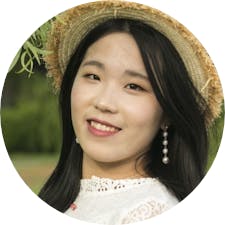In Sarner Underground every Monday evening, a diverse group — ranging from nervous ’21s to members of the local community — gather together to learn and practice the beautiful art of Argentine tango.
Founded by enterprising students with the help of faculty advisor Armin Helisch in April 2005, the Dartmouth Argentine Tango Society has been striving to create a fun, accessible and inclusive space on Dartmouth campus.
“We have a mission that’s written in our constitution,” co-president Faith Rotich ’18 said. “It’s to foster a passionate interest in the art of tango among the Dartmouth and surrounding local community. We aim to use dance as a means to educate people about Argentine history, tradition and cultural practices.”
DATS continues to strive toward introducing tango to beginners and sparking a passion within them they otherwise may not have encoutered. Co-president Jay Raju ’18 joined the group his sophomore spring term, without much prior dancing experience.
“A very close friend of mine … encouraged me to check [DATS] out, which eventually became him physically dragging me to tango,” Raju said. “I wasn’t really sure what to expect, I was worried that everyone would be a better dancer than me … But not only was I not the only first-time dancer there, but everyone there — even the very experienced dancers — were incredibly supportive at helping me along the way.”
Jacqueline Anders ’18, a member of DATS, shared the emphasis on accessiblitly and inclusivity.
“[DATS is] very progressive, super open,” Anders said. “I wouldn’t say [Argentine tango] is a beginner-friendly dance, but the instruction is very beginner-friendly.”
The large community involvement also impacts the friendly and close-knit atmosphere of the group according to its members.
“[There’s] much more community involvement,” Anders said. “[Community members] are probably half the club … which is very good. It gives you a different vibe.”
Helisch, who is also a long-time volunteer instructor for DATS, explained another factor that adds to the open nature of the group.
“The people that want to dance tango just seem to be nice people that tend to like to be with other people,” Helisch said. “We’re not [following the] traditional idea of men as leaders and women as followers only, but we want everyone to lead and to follow so everyone feels welcome regardless of gender and gender identity.”
Anders echoed a similar sentiment about the equal learning opportunity within DATS.
“How to follow, how to lead — they make you do both, which I think is very cool,” Anders said.
The intimacy and the communicative bond formed between members is characteristic of DATS that Raju attributes to the inherent nature of Argentine Tango itself.
“[Tango] is a very intimate dance in terms of how close you are to the partner … and when the leader steps forward, the follower must immediately know to step back,” Raju said. “The only way to make something like that work without ever speaking or communicating verbally is to be attentive …. and by being as clear as possible and as open as possible. You actually find these amazing connections that, at least in my personal life, I haven’t really been able to find to that very visceral nature outside of tango.”
This emphasis put on community building, trust and communication was understood widely among the group members. When describing her favorite dance move, the volcada, Rotich said trust was key.
“You put almost all your weight on your partner,” Rotich said. “And you have to trust that you will not fall. There’s many people we’ve met through teaching tango, and I think that’s been probably the biggest enrichment.”
Raju said that the collaborative teaching the club undertakes has personally benefitted him.
“[Tango] has awakened my inner teacher,” Raju said. “Learning how to effectively communicate the nuances of moves to other people has given me a lot of personal satisfaction.”
Other than the love of the community and camaraderie found within the society, members also like how the dance evokes a sense of passion and attachment.
“I guess I enjoy dancing,” Anders said. “If I’m ever near any [major cities], I would have an easy time to go [to a tango club] once a week or so and hang out with people. [It’s] super fun.”
Rotich, who was also first introduced to tango at Dartmouth, highlighted the unique “presence” required of tango dancers.
“You have to be there, and you have to be willing to connect with someone else,” Rotich said. “It’s energizing in a way.”
Anders noted an added benefit of learning tango.
“Being able to dance is very attractive,” Anders said.




